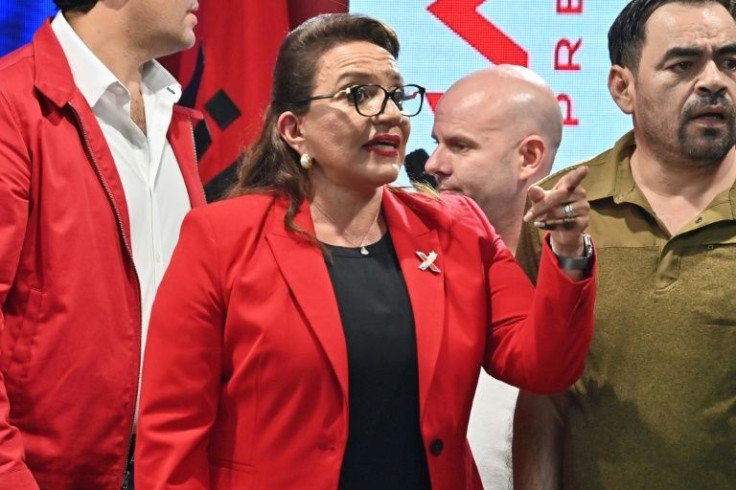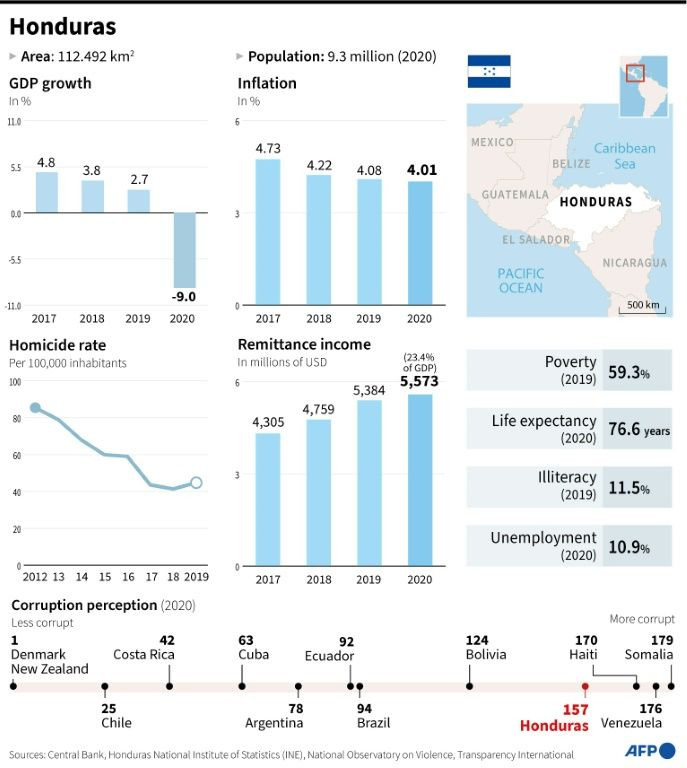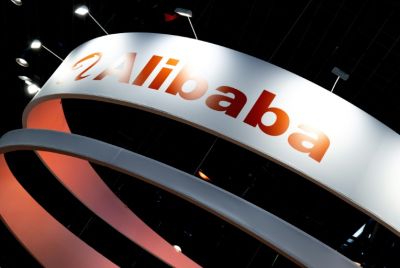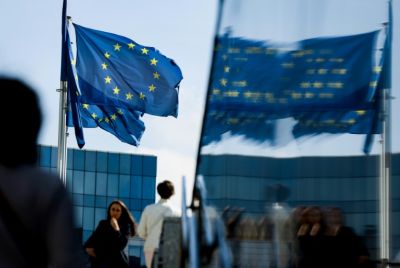Tough Road Ahead For Honduras' New President Castro
Once Xiomara Castro's expected election victory is confirmed, making her Honduras's first woman president, she will immediately face a daunting panorama of challenges.
With more than half of the votes counted, experts say Castro's 20 percentage point lead is "irreversible."
Here AFP looks at the toughest obstacles Castro is likely to face when taking office as head of a country wracked by gang violence, drug trafficking, corruption and widespread poverty.
According to Transparency International, Honduras is 157th out of 180 countries in its corruption perception index, making it one of the most graft-tainted places in the world.
Under outgoing President Juan Orlando Hernandez, the anti-corruption fight in Honduras suffered several blows in 2020.
Firstly a regional anti-corruption commission was disbanded, then congress passed a new criminal code to lower graft sentences, and finally a special appeals court dismissed charges against almost two dozen people accused of embezzling $12 million of public money.
Earlier this year a new penal code -- dubbed the impunity law -- came into effect that makes it tougher to try people for corruption.
The first task for Castro will be to reverse "all those laws and legislative reforms that previously allowed the current government to protect corrupt officials," said Victor Meza, the director of the Honduran Documentation Center NGO that promotes democracy.
It is a battle that she cannot win on her own, though.

"The issue of corruption and impunity is so strong that it needs outside actors to be able to" dismantle it, said Gustavo Irias, executive director of the Center for Democracy Studies.
More than a dozen migrant caravans have set off from Honduras since October 2018 in the hope of reaching the United States.
Some of these consisted of thousands of people and former US president Donald Trump at one point threatened to deploy the US military to stop them.
In 2021 alone 50,000 Honduran migrants have been sent home from either the United States or Mexico.
The main solution is to create jobs.
Castro's LIBRE party in its campaign identified "the lack of employment as one of the most serious factors in the expulsion of the population."
Political analyst Raul Pineda says the problem is that even educated people cannot find work.
"They go to other countries because they don't have opportunities" in Honduras.
The Covid pandemic hit jobs particularly hard with unemployment almost doubling from 5.7 percent in 2019 to 10.9 percent in 2020.

Around 59 percent of the population lives in poverty.
Drug trafficking has become such a problem in Honduras that it even pervades the very top rungs of government.
Family members of Honduras's last two presidents have been jailed in the United States for drug trafficking.
One of the main presidential candidates, Yani Rosenthal served three years in a US jail for laundering drug trafficking money.
Honduras has been branded a "narco-state" over government links to the illicit business.
Drug barons extradited to the United States by Hernandez have even pointed the finger at him.
Migdonia Ayestas, director of the Violence Observatory at the National University says Castro needs to "attack impunity" that sees politicians and criminal gangs working together in drug trafficking.
To do so will involve "the purification of justice agencies, the police."
The United States took great interest in the presidential poll, sending assistant secretary of state for the western hemisphere Brian Nichols to the country to meet with officials and demand "transparent and peaceful elections."
"The Americans feel they are losing influence in Central America," said Pineda.
"They have a bad relationship with El Salvador, a bad relationship with Nicaragua ... the relationship with Guatemala has cooled a lot, so to lose Honduras would be to lose control of Central America."
The US maintains a military base in Honduras, ostensibly to provide humanitarian aid to the region.
Leftist Castro was rumored to have made overtures to China during the election campaign but Pineda cannot see a drastic change in foreign policy.
"It's not an ideological issue, it's about interests, opportunities," he said.
"China has shown no interest in tightening relations with Honduras.
"The US is the power that we orbit around. They buy 95 percent of our exports, they lend us money so the Honduran economy can survive ... they can maintain the economy of this country so no government is going to fight with them while this economic dependency exists."
© Copyright AFP 2024. All rights reserved.





















